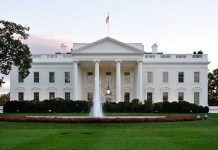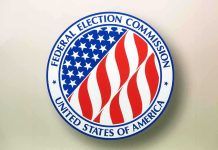
The Trump administration’s decision to cease official observance of LGBT Pride Month within the Department of Defense symbolizes a significant shift in military policy.
Key Takeaways
- The Department of Defense has stopped supporting cultural awareness months, aiming to emphasize military readiness.
- President Trump signed orders to remove pronouns from federal emails and to end gender ideology programs.
- Executive orders banned transgender individuals from serving openly in the military.
- The Trump administration’s moves aim to establish merit-based systems, excluding diversity, equity, and inclusion (DEI) initiatives.
Revoking Progressive Policies
The Trump administration’s strategic direction on policies related to personal identity and inclusivity marks a definitive departure from the previous administration’s approach. Focus shifted to fostering military effectiveness, considering initiatives like LGBT Pride Month as potentially divisive. Thus, Secretary of Defense Pete Hegseth announced the cessation of support for events highlighting cultural awareness, a move consistent with the administration’s objectives.
The Pentagon’s new policies extend beyond the elimination of observance months. Transgender individuals can no longer openly serve in the military, adhering to the executive orders signed by President Trump.
Impact on Federal Agencies
Federal agencies have experienced challenges in interpreting Trump’s executive orders that concluded DEI programs due to insufficient guidance. Agencies like the Defense Intelligence Agency (DIA) have temporarily paused their activities related to cultural and historical event observances such as Martin Luther King Jr. Day, Pride Month, and others. These actions reflect the broader aim of dismantling programs perceived as culturally engineering the military workforce.
“We have been here before and seven years ago were able to successfully block the earlier administration’s effort to prevent patriotic, talented Americans from serving their country” – Sasha Buchert
Despite resistance from advocacy groups who are preparing to challenge these restrictions legally, the administration continues to argue the return to traditional gender norms supports military discipline and preparedness.
A Shift Towards Merit-Based Systems
President Trump’s orders assert that diversity initiatives obstruct merit-based classifications, suggesting areas involving race and gender as counterproductive to the administration’s vision. The executive orders emphasize military ideals not aligned with gender ideologies and focus resources on core military goals. These measures have sparked significant discourse, highlighting varied perspectives on government roles in social inclusivity versus traditional military readiness.
“This week, I will also end the government policy of trying to socially engineer race and gender into every aspect of public and private life. We will forge a society that is color-blind and merit-based. As of today, it will henceforth be the official policy of the United States government that there are only two genders: male and female.” – Trump
The administration’s commitment to its current trajectory may invite scrutiny from both humanitarian organizations and allies who challenge this policy direction. These policy shifts demonstrate the administration’s broader impetus to remove identity politics not only from federal agencies but also as a principle believed to detract from traditional national values.
Sources
1. Trump bans transgender service members from U.S. armed forces














